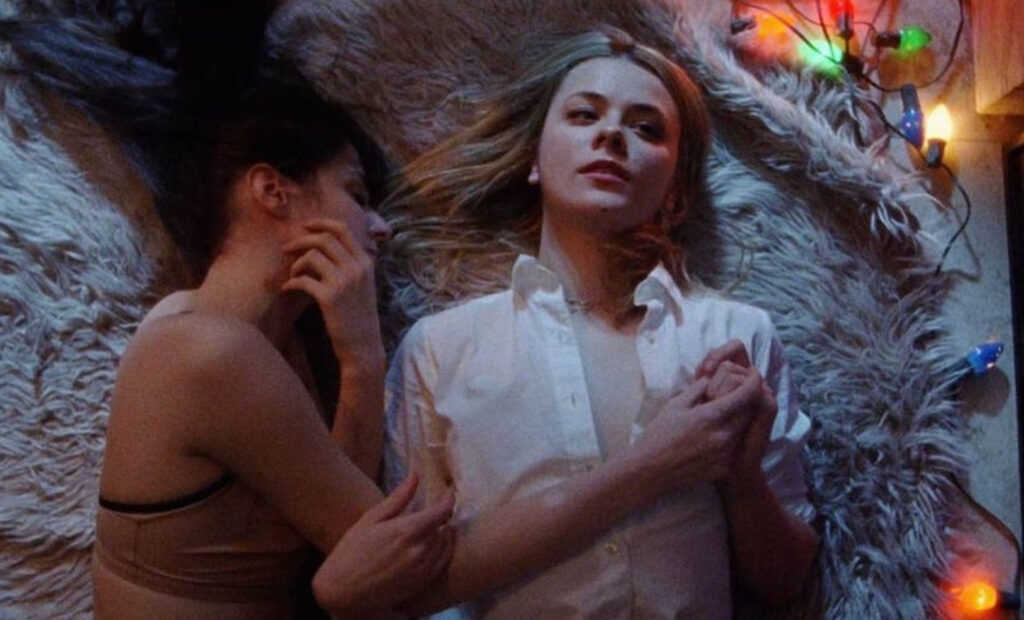The Scary of Sixty-First

The source of much industry prattle, enfant terrible Dasha Nekrasova, one half of the agitating Red Scare podcast, brings her directorial debut feature to Berlinale’s sidebar, Encounters. With a synopsis to kill for (the satanic apparition of a Jeffrey Epstein victim haunts two young women renting an apartment on the Upper East Side) and billed as a throwback to 70s psychosexual thrillers (Brian De Palma’s Sisters springs to mind), it promises much that’s exciting, lurid and offensive.
But despite the subject matter, its filmic ambience is rather more circumspect and discerning, partly due to its loyalty to its cinematic influences. Shot in coarse 16mm by DP Hunter Zimny, and immersed in Eli Keszler’s choral-and-drone infusion, mauvish visuals and sonic incantations seek to underscore the abrupt shock appeal of the dialogue. Her Majesty The Queen is described as a “batty old cunt”, for instance.
The publicity materials make much of the giallo stylings and thematic trappings, but the immediate aping of Roman Polanski’s Rosemary’s Baby, down to the pink serif titles and tilting New York cityscape, more keenly captures the ominous paranoia it seeks to elicit. Addie (Betsey Brown), a wannabe actor no less, and her friend, Noelle (Madeline Quinn, who co-wrote), take residence in a surprisingly discounted property, offered up by a dubious estate agent. Why so cheap? Cue the entrance of The Girl (Nekrasova), who tells the pair that, yes, Epstein, used to live there and, yes, it’s time they all delved into an abyss of deep state conspiracies.
The film has some useful things to say about the contemporary mediation of images and information, the whirl of powerlessness that appears to fuel much online discourse and manifests itself in sweeping explanations of truth and power. And it’s funny: the line readings are catatonic, the satirical targets ripe for outrageous treatment, and the unattended screenplay choices left to coagulate like fish paste. The montage of gargoyles preempts the real thing: the array of Prince Andrew bric-a-brac that provides a fertile source for one character’s controlled masturbatory regimen.
The attempted revolt against or, more acutely, the modern despondency towards arcane economic structures underpins the movie’s apparent thesis: that obscene horror is the only possible response to the disaggregated, discomforting world in which we live. In Rory O’Connor’s interview for The Film Stage, Nekrasova notes that “spirit or demonic possession […] can be a kind of non-linear resistance”, and, as it’s rendered here, the narrative stakes appear inconsequential. Likewise, the expected moral qualms are relegated by the excessively modulated tone, which is essentially trivial, placid and reverential.
Joseph Owen
The Scary of Sixty-First does not have a UK release date yet.
Read more reviews from our Berlin Film Festival 2021 coverage here.
For further information about the event visit the Berlin Film Festival website here.























Facebook
Twitter
Instagram
YouTube
RSS